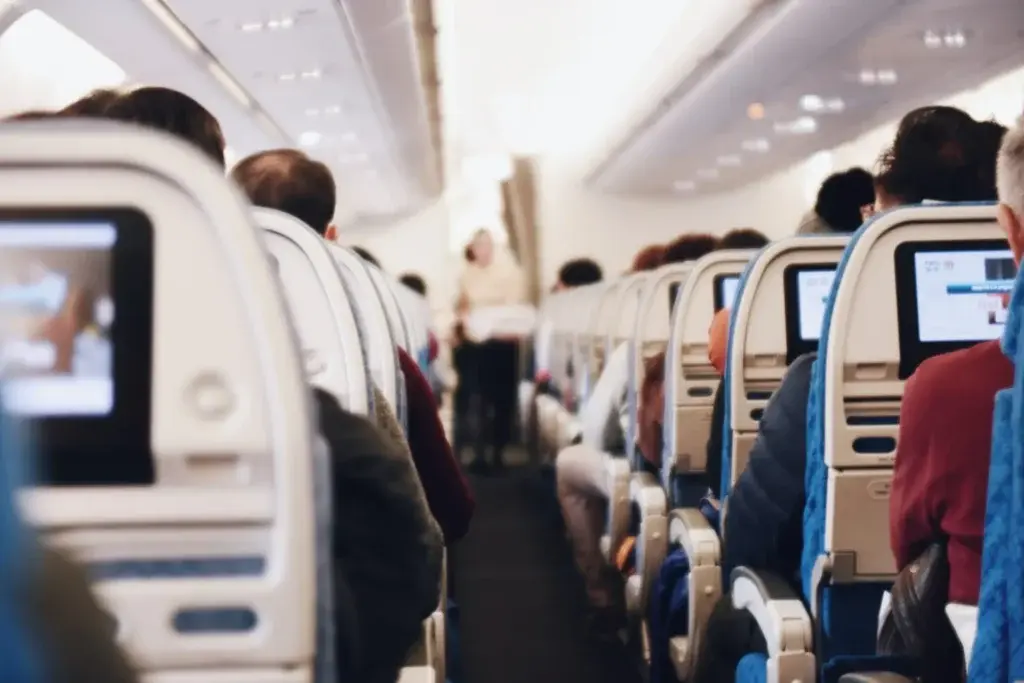Planning a trip to Canada: what papers do you need? How can you make sure you're well covered during your stay? How do I purchase travel insurance for Canada? We tell you all about it in our complete guide!
Travel Insurance Canada
Prix moyen constaté
11,97€/Pers*
*Tarif pour un voyage d’une semaine pour une personne de 30 ans (sans annulation).


COVID-19
Compulsory full vaccination schedule

Mandatory documents
Valid passport is required

Residence permits
Mandatory

Currency
Canadian dollar

Vaccination
No vaccination required

Travel Insurance Canada
900,000€ coverage recommended by Yupwego

Best period
June to September

Emergency numbers
medical emergencies - 911
Your Travel Health Insurance Canada online
Start your quote now and obtain your Canada medical insurance certificate, which covers medical expenses up to €500,000.
Discover Canada
Canada at a glance
Canada is a vast and diverse country with many natural and cultural wonders to discover. From the boreal forests of the north to the vast prairies of central Canada, from the Rocky Mountains to the spectacular coasts of the east, Canada is a playground for nature lovers and adventurers. Canada's cities are also rich in history, culture and gastronomy, with popular tourist attractions such as the CN Tower in Toronto, Quebec City's Old Town and the Canadian Museum of History in Ottawa. Discover the beauty of Canada!
Must-sees
See our complete guide to must-sees in Canada.
Travel Insurance Canada
Is travel insurance mandatory in Canada?
It is not mandatory to travel to Canada. However, it is strongly recommended that you take out travel insurance to cover medical and other expenses in the event of an emergency.
Why should you take out travel insurance for Canada?
There are several reasons why it's a good idea to take out travel insurance in Canada:
- Medical expenses: In the event of illness or injury, medical expenses can be very high in Canada, especially if you have to be hospitalized. Travel insurance will cover these costs, so you don't have to pay out of pocket.
- Repatriation: If you need to be evacuated to receive appropriate medical care, travel insurance can cover the cost of evacuation, which can be very expensive.
- Third-party liability: If you cause damage to others or property, travel insurance can cover the cost of third-party liability.
- Loss and theft: If your luggage is lost or stolen, or if you lose money or valuables, travel insurance can cover these losses.
- Cancellations and delays: If your trip is cancelled or delayed due to unforeseen circumstances, such as illness or natural disaster, travel insurance can cover the associated costs.
What does my YUPWEGO Canada travel insurance cover?
To travel to Canada, YUPWEGO recommends a minimum coverage of €900,000. Here's just one of the coverages we offer for each of our contracts:
Before you leave
What are the conditions for entering Canada?
Here are the conditions for entering Canada:
- A valid passport is required to enter Canada.
- Meet health and safety eligibility requirements
- Proof of vaccination against COVID-19 and compliance with current sanitary measures
- Electronic Travel Authorization (ETA) for tourist travel or a valid visa for other types of travel
- Have a return or onward ticket
- Have enough money to cover expenses during their stay
- Have a legitimate reason for travel and be able to demonstrate it if necessary
Jet lag
The time difference between France and Canada varies from 5 to 9 hours, depending on the region visited.
How can I insure myself for the long term?
If you want to be insured for a long period in Canada, you may consider taking out expatriation insurance specially designed for expatriates, or PVT insurance for studies or internships abroad.
Health and health care in Canada
What are the health risks in Canada?
Overall, Canada is a health-safe country, but there are a few risks to consider: the presence of mosquitoes carrying Lyme disease and West Nile fever, sporadic cases of rabies, and extreme weather conditions in some regions.
What type of plumbing system should I use?
Canada's health care system is made up of both government-funded public health care and private health care. Travelers can use both networks, but for emergency care, we recommend going to a public hospital or health center rather than a private clinic, where costs can be higher.
Travelling responsibly in Canada
How can you reduce risks by traveling responsibly?
- Plan your trip in advance, with information on places to visit, modes of transport and weather conditions. Plan your itinerary in advance to avoid the unexpected.
- Comply with the laws and regulations in force in your country and the various provinces or territories. Pay particular attention to driving rules and speed limits.
- Be aware of health risks by finding out about the necessary vaccinations and taking the necessary precautions to avoid illness.
- Avoid high-risk areas, such as those with a high crime rate or those affected by natural disasters. Pay attention to local alerts and follow the instructions of the authorities.
- Encourage responsible tourism by choosing local businesses, sustainable accommodation and ecotourism activities. Respect the natural environment and don't leave garbage behind.


















